 Petzlover
Petzlover Dachshund is originated from Germany but Maltipoo is originated from United States. Dachshund may grow 7 cm / 2 inches shorter than Maltipoo. Dachshund may weigh 9 kg / 20 pounds more than Maltipoo. Both Dachshund and Maltipoo has same life span. Dachshund may have more litter size than Maltipoo. Dachshund requires Low Maintenance. But Maltipoo requires Moderate Maintenance
Dachshund is originated from Germany but Maltipoo is originated from United States. Dachshund may grow 7 cm / 2 inches shorter than Maltipoo. Dachshund may weigh 9 kg / 20 pounds more than Maltipoo. Both Dachshund and Maltipoo has same life span. Dachshund may have more litter size than Maltipoo. Dachshund requires Low Maintenance. But Maltipoo requires Moderate Maintenance
 The Dachshund originated in Germany. He was used as a hunting dog with his origins starting way back in the 15th century already. The small dog was developed to hunt for animals that buried themselves deep underground such as badgers. The shape of the dog and his courage and bravery allowed him to take on the badger.
The Dachshund originated in Germany. He was used as a hunting dog with his origins starting way back in the 15th century already. The small dog was developed to hunt for animals that buried themselves deep underground such as badgers. The shape of the dog and his courage and bravery allowed him to take on the badger.
There has been a lot of debate as to whether the Dachshund is a hound or terrier, and it was decided that the Dachshund is a hound that became a terrier, and which displays some of the best qualities of both.
It was in 1881 that the Dachshund Club of England was formed and the German Deutscher Teckelklub was formed in 1888. The small dog gained popularity in America and the Dachshund Club of America was founded in 1895.
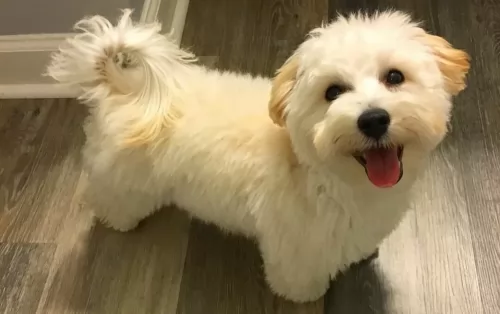 The Maltipoo is a popular dog breed – a cross between the Maltese and Poodle. The dog originates in the United States.
The Maltipoo is a popular dog breed – a cross between the Maltese and Poodle. The dog originates in the United States.
The Maltipoo is a cross breed but it is often referred to as a designer dog because of it being purposely bred. The cute little dog has been created to be a companion dog, suiting allergy sufferers because of him being a low shedder and considered hypoallergenic.
The Maltipoo isn’t officially recognized as a true breed. Some Maltipoo Clubs and Registries have been formed.
 Known as Badger Dogs, Sausage Dogs or Doxies, the Dachshund is known for his long body, his sharp, pointed face and the short legs with the large front paws.
Known as Badger Dogs, Sausage Dogs or Doxies, the Dachshund is known for his long body, his sharp, pointed face and the short legs with the large front paws.
He stands at about 21-28 cm while the female may be 20-25 cm and weighing 6 to 15kg. He is the smallest of the hound dogs, with the standard size dachshund being developed to scent and chase badgers and other animals.
There are different Dachshund coat varieties – the smooth coat, the long-haired Dachshund and the wire-haired dachshund. They also come in a number of solid colors such as brown, red, tan, chocolate and black.
The dachshund is an energetic,social little dog with a loving personality. He’ll love to lie as close as possible to you on the couch and be with you wherever you are. Training and socialization is important so he doesn’t become too protective so that he wants to go for anyone who comes near.
He can be stubborn but he is also protective of his human family. Dachshunds are known for their tendency to bark but training and socialization can help tremendously to make him obedient and relaxed around humans and pets.
He is small enough to be a great pet in the city or in the country. He loves to spend time indoors- as well as outdoors. He can become a loving companion and gets on well with children and pets in the house. In spite of his small size, he makes a good watchdog.
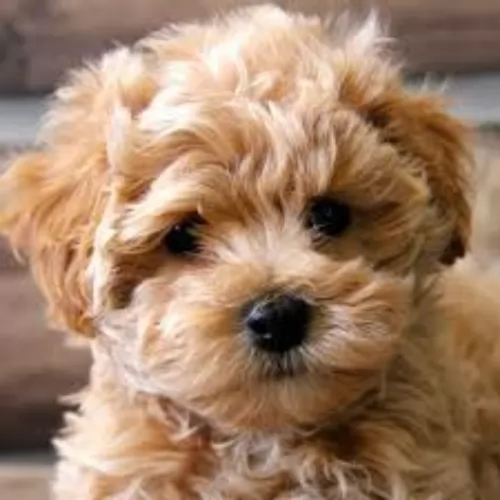 The small Maltipoo stands at between 20 and 35cm and weighs about 2 to 6kg. There is no breed standard for this dog. The coat is fluffy and is more inclined to be wavy than curly. It can become quite long and most people prefer to have him professionally clipped.
The small Maltipoo stands at between 20 and 35cm and weighs about 2 to 6kg. There is no breed standard for this dog. The coat is fluffy and is more inclined to be wavy than curly. It can become quite long and most people prefer to have him professionally clipped.
Coat colors vary from white to cream, apricot and brown or it can be a combination of these colors. He has a tail which some people prefer to dock, but if not, the tail is long and curls, sometimes over the back.
Owning a Maltipoo, you’ll quickly discover that this little dog is active, feisty, bright and, fun-loving, and your life is pretty much not going to have a dull moment with him in it.
If you’re a first time dog owner you’ll love the Maltipoo as he is pretty much easy going. He makes an excellent family pet as he is even tempered. Make sure your kids have been taught how to treat him – with respect, gentleness and kindness. Never allow toddlers to climb over any dog – big or small.
The Maltipoo is intelligent too and this means training and socialization will be easy for him. Many people use them as therapy dogs and they definitely seem to have an affinity with older people, bringing joy into their lives with their bright nature.
They are dogs that can adapt to life in the city or the countryside, just so long as they are with their beloved human family. They’re essentially indoor dogs but will gladly venture outdoors if it means ball games on the lawn with the children or a walk outside the confines of his home. This gives him the opportunity to smell new aromas, a physically and mentally stimulating game for him.
 The Dachshund may be small but he is courageous, brave and loyal. He gets on well with children and pets in the home but care needs to be taken because of his long back.These dogs are prone to disk problems so you have to be careful with rough and tumble from children.
The Dachshund may be small but he is courageous, brave and loyal. He gets on well with children and pets in the home but care needs to be taken because of his long back.These dogs are prone to disk problems so you have to be careful with rough and tumble from children.
Dog experts say that the different kinds of Dachshunds produce different personalities and that the longer-coated one is more amicable than the short-coat variety. Whichever variety you choose, they are guaranteed to entertain and delight you and be a loyal, loving companion.
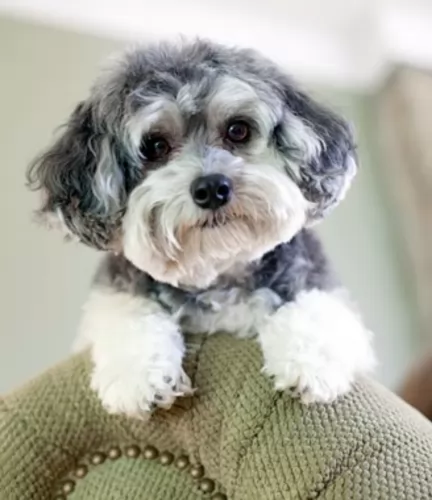 Your Maltipoo is guaranteed to bring much joy into your home. He is a social dog, loving to spend time with his human family, whether indoors our outdoors. He is an active dog so will look forward to his walk every day.
Your Maltipoo is guaranteed to bring much joy into your home. He is a social dog, loving to spend time with his human family, whether indoors our outdoors. He is an active dog so will look forward to his walk every day.
Treat your little pet with love and good care, after all he has got so much companionship to offer and deserves the best there is to that the 12 to 15 years he has are filled with health and happiness.
 The life expectancy of the Dachshund is 12 to 16 years. With good care which includes good nutrition he can reach mature years. However there are always some dog diseases that are worth knowing about so that you can steer your pet away from them.
The life expectancy of the Dachshund is 12 to 16 years. With good care which includes good nutrition he can reach mature years. However there are always some dog diseases that are worth knowing about so that you can steer your pet away from them.
One of these is obesity, and the Dachshund is prone to developing obesity. Never overfeed him and ensure he gets his regular exercise which can be walks and ball games. Check with your vet if you’re unsure about how to feed him. Essentially, the amount of food you give a dog depends on the size of your dog, his age and his activity levels.
Be sure to provide high-quality food and monitor his intake. Your vet is always there to advise on the correct food and amount that can help him remain healthy.
Unfortunately, this dog’s shape – the long back – makes the dog more prone to disc herniation. With some Dachshunds having a gene that creates mineral deposits in the discs in the spine, the risk of herniation is higher.
A large percentage of dachshunds have intervertebral disc disease. Encourage your Dachshund not to jump down off a bed or couch, but rather provide some steps for him to get to out of reach places.
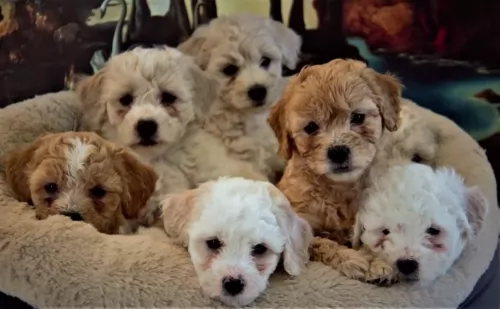 The Maltipoo is such a bright little dog, brimming with energy, but even so, he can get sick, just like with any other dog.
The Maltipoo is such a bright little dog, brimming with energy, but even so, he can get sick, just like with any other dog.
Small dogs are prone to dental problems and gum disease and tartar build up can cause many problems and tooth loss. Any dental infections can lead to infections which can put the entire body in jeopardy.
This is a degenerative eye disorder that can cause blindness and although there is no cure there are things that the vet can do for your pet.
 The Dachshund is a medium shedder and if you choose the short haired dog, you’re going to have a low maintenance pet.
The Dachshund is a medium shedder and if you choose the short haired dog, you’re going to have a low maintenance pet.
The long haired Dachshund will require more regular brushing but the short-haired Dachshund is a low maintenance dog that will require a brush once a week.
While brushing him, you can be checking his ears and nails at the same time. All dogs with floppy ears need to have them checked for ear infections. Also, maintain good oral hygiene with your Dachshund by brushing his teeth 2 or 3 times a week.
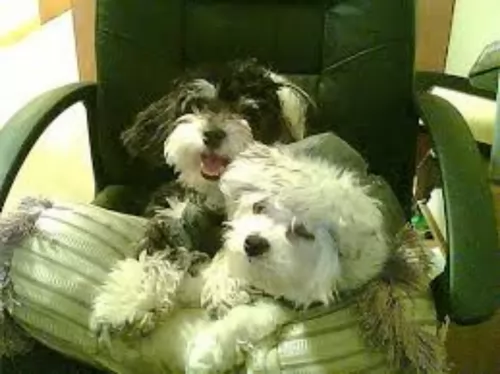 The Maltipoo is such a sweet little dog – you want to be sure that you look after him as well as can be.
The Maltipoo is such a sweet little dog – you want to be sure that you look after him as well as can be.
Always take your pet for regular veterinary check-ups if you suspect he is ill. If you get a Maltipoo puppy you will need to take him to the vet because there are a number of vaccines he will need to prevent him from picking up some life threatening canine diseases. Some of these are parvo and rabies among others.
Also, as your Maltipoo reaches adulthood you will need to decide whether you will have the dog spayed or neutered to prevent puppies.
Groom your Maltipoo to keep the coat in tip top condition. Brush him at least twice a week to keep him free of loose hairs. It’s a nice bonding session for your pet too and it gives you the chance to check for fleas and ticks. Most Maltipoo owners take their pets to professional groomers to have the coat trimmed as then he looks and feels more comfortable in warmer weather.
Be careful about bathing him too often as even the mildest shampoos can irritate his skin and it strips the coat of natural oils. Other grooming needs will require you keeping his nails short and cleaning his teeth at least 2 or 3 times a week. Because he has floppy ears, check inside them as they can collect excess wax and debris.
If you are unsure about these kinds of grooming needs, check with your vet or groomer because doing it wrong could cause injury to your pet.
Give your pet a soft, warm, dry bed to sleep in. You can make a soft ‘nest’ on the floor or you can buy a sleeping platform or traditional dog basket.
With a Maltipoo, choose a high-quality small breed dog food if you are going to feed him commercially manufactured food. This is to ensure he remains healthy. Try and keep your diet simple for your Maltipoo to avoid stomach problems.
For variety, add in some chopped boiled chicken, brown rice and vegetables to his dry kibble. The amount of food you give him will depend on his size and activity levels but you want to avoid feeding him too much so that it leads to obesity. Obesity can bring on a host of dog illnesses.
As opposed to one larger bowl of food, rather feed him two smaller meals which is far healthier for him. Remember to always have a bowl of fresh, cool water standing close by.